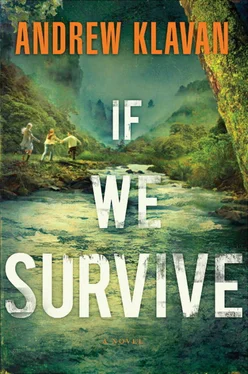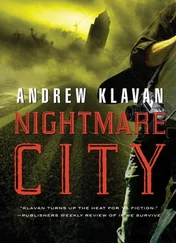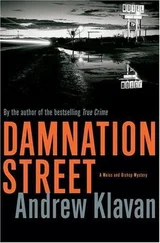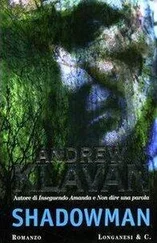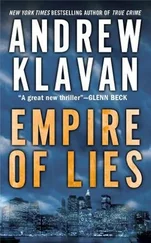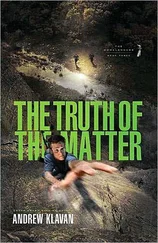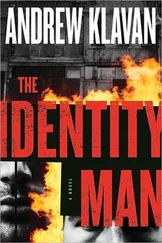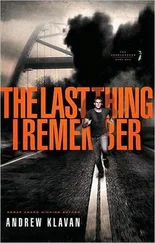I lifted my machine gun again. I did what I had done before: I fired over his head. He flinched a little, but he was braver than the others. He didn’t dive for cover. He didn’t stop at all. He drew his arm back, ready to throw the hand grenade at us.
Panicking, I let off another round of bullets at him. It had no effect—none. He just stepped forward and started to throw the grenade at us. Down the road, the truck kept racing our way. One of the gunmen in the truck bed was trying to steady his machine gun on the roof of the cab so he could take a shot at us.
I didn’t know what to do—that is, I did know. I knew what I had to do. And I had less than a second—a microsecond— to make up my mind and do it.
I lowered the machine gun. I aimed directly at the man with the grenade. He had just begun to bring his hand forward in a throwing motion. He was just about to hurl the grenade at the van. If he threw well, the thing would go off and blow us to smithereens.
I pulled the trigger of my machine gun.
As I looked on in fascinated horror, the bullets from my gun struck the man with the grenade in the chest. I could see his shirt ripple and see the black spots where the bullets hit.
The man’s mouth opened wide in shock and pain. He stopped in his tracks. He clutched his chest with his free hand and toppled over backward. He lay still in the dust. I was pretty sure he was dead.
The grenade dropped weakly out of his other hand and rolled into the middle of the road.
I sat there cross-legged in the back of the van and stared at the fallen man—almost as if I were surprised to see him there, as if I didn’t even understand that I was the one who had shot him, that my pulling the trigger was what had sent the bullets into him and killed him.
I shifted my eyes and saw the pickup truck with its cargo of rebels racing toward us. Gaining on us. Getting closer and closer.
Then, just as the truck ran past the fallen rebel, just as its front fender rolled over the grenade—the grenade exploded.
It made a sound like whump— not a great big blast but a surprisingly dull thud. A black cloud of smoke and shrapnel flew up under the pickup—and the force of it actually lifted the front of the truck right off the road into the air.
The truck went up quickly and came down hard. And when it came down, it swerved sharply and started to tip over. Even from a distance, I heard the rebels in the truck bed screaming. I saw two of them leaping out of the bed, jumping clear. The other rebels were still holding on for dear life as the truck bounded off the road out of control and dropped onto its side. Flames shot out from the undercarriage and smoke poured from the windows. More of the rebels were jumping off it, and the ones inside the cab were quickly scrambling out.
Then our van turned a corner and the truck went out of sight.
“Nice shooting, kid!”
I looked back over my shoulder at the shout. It was Palmer. He had seen what had happened in his big side-view mirror. He pumped his fist at me once even as he guided the truck forward at high speed with his other hand.
I nodded to him. I smiled. But it was a sickly smile. Holding the machine gun weakly in my lap, I looked out the back of the van and stared at the winding jungle road spinning out behind us.
I didn’t feel like laughing anymore. I didn’t feel like shouting whoo-hoo . This didn’t seem like a video game now. It didn’t seem like any kind of game at all. This was happening, really happening, happening to me.
And I—Will Peterson—sixteen years old—from the quiet little town of Spencer’s Grove, California… I had just killed a man.
A jagged bolt of lightning lanced the darkening sky. The thunder rolled again. The rain started slanting down, pelting the road behind us, turning up dust and beginning to transform it into mud. The van went on bouncing and shuddering along at top speed. I sat where I was and stared out into the storm.
We were clear of the village. For the moment, there were no more soldiers left to attack us. That was a good thing too. I don’t think I would’ve been able to shoot anyone else. What I had done, I had done in a moment of danger and panic—a moment when it was kill or be killed. And I know, I know— I had to do it. I had to protect myself. I had to protect my friends. But now that it was over, I felt sick in my heart. I had ended a human life. And it felt lousy. Really bad.
The van turned off the road and started down a narrow dirt path. If the ride had been rough before, it was really wild now. The van jumped and bucked and leaned this way and that. The jungle trees moved in close on either side of us. The leaves hung over us, so thick they actually held off the falling rain.
We were on the little side road now that led to the airstrip. I remembered the look of it from when we first arrived. Another few minutes and we would be at Palmer’s plane. We would take off and fly north until we reached an airfield in the south of Texas. From there we would take another plane to Houston. From there, we would fly to Los Angeles and make our way home by bus.
It would all take only a few hours. In only a few hours we would be out of this nightmare and back in our homes, back with our families, back in the normal world.
All except Pastor Ron. He wasn’t ever going back to his family again. And neither was the rebel I had shot in the chest.
I thought about that as the van bounced along. I thought about how we would go home and everything would be the same and everything would have changed too. I knew there was a lot of stuff I was going to have to think about and figure out once we got away. But all the same, I was desperate to go, desperate to leave this madness, desperate to get home.
The van came around a bend and began to slow. I looked over my shoulder and saw the airstrip through the front windshield. We had arrived.
The van came to a stop and I climbed to my feet.
“Thank you, God!” I heard Nicki say.
Palmer got out from behind the wheel. Jim slipped open the side door and climbed out too. Nicki scrambled quickly off her bench and jumped out. Meredith turned to me and offered me a sad smile, as if she understood all the stuff that was going through my mind. Then she slid off the bench too and got out of the van.
I set the rifle aside. I was glad to get rid of it. I climbed out through the open back door.
And because I was the last one to leave the van, I was the last one to see what had happened.
The airstrip wasn’t much to look at. It was just a line of flattened dirt in the middle of a small clearing surrounded by jungle. The rain was falling fast now and the strip—that line of dirt—was quickly turning to mud. As I came out of the van, I felt the cold drops pelting me, pelting my hair, my face. I had to squint through the water to see—and I saw the others just ahead of me, standing in a cluster: Palmer in front, Jim at his left shoulder, Meredith and Nicki behind his right shoulder. They were all standing still, all looking out across the field, through the rain.
I joined them—and I saw what they were looking at: Palmer’s plane, which was still sitting where he had parked it at the far end of the landing strip.
The plane had been totally destroyed. As in: totally. It had been set on fire. Even in the rain, it was still smoking—what was left of it—which wasn’t much. Its landing gear was completely smashed, the tires flat, the struts bent out of shape. One of its wings was in fragments, almost gone. The windows were all broken. And the entire fuselage was burned charcoal black.
It wasn’t going to fly us home. It wasn’t going to fly anybody anywhere.
Looking at it, I felt something drop inside me, like an elevator falling out of control. It was an awful feeling. Our only way out of here, our only means of escape—ruined; gone. We had been so close—so close to getting out—only hours from getting back to our families—and now… it seemed like there was no way, no way home at all.
Читать дальше
